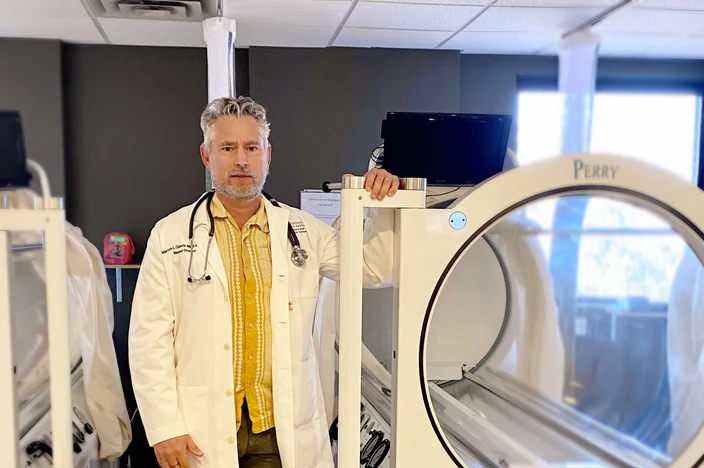How important are mitochondria in aging?
Over 1500 papers were published in 2019 and 2020 on this topic alone, illustrating what a hot topic this is in aging research.
Very simply, without optimal mitochondrial function, health as we know cannot exist. Mitochondria are the machines that power all the activities in our cells.
What we know is that mitochondrial function varies considerably from one individual to another, and sub-optimal mitochondrial function is associated with many of the most common problems we associate with aging.
One of the most fascinating aspects of the emerging science of mitochondrial function is the way it is is becoming increasingly clear that these cellular power plants behave very much analogously to the power plants that run our cities; when they run optimally, there is plenty of power for all of our human needs, and when they fail, everyone notices, because life just cannot go on normally, without power.
Also like our city power plants, our cellular power plants can produce pollution, in the form of “free radicals;” molecular “buzz saws” that can damage delicate intracellular structures, including the most precious — our genetic code — inside the nucleus.
As researchers in the prestigious journal, Molecular Cell wrote,
“these observations suggest that mitochondria influence or regulate a number of key aspects of aging and suggest that strategies directed at improving mitochondrial quality and function might have far-reaching beneficial effects.” ¹
With increasing evidence supporting the notion that mitochondrial function is key to health and healthy aging, it is heartening to find abundant evidence that we can indeed support mitochondrial function in ways that are relevant to aging, and wellness.
Pyrroloquinoline quinone (PQQ) has been shown to be fundamentally important to maintaining healthy mitochondrial function. What is more important is that it is virtually absent from our diets, and that it seem to function as an essential nutrient in maintaining mitochondrial energy production, as well as reducing free radical “pollution” from our intracellular power plants.
Bruce Ames, PhD, of The University of California at Berkeley, a distinguished aging researcher, in a 2018 article in Proceedings of the National Academy of Sciences, names PQQ as one of 10 “Longevity Vitamins.” ².
As a physician involved in active management of healthy, and compromised individuals, PQQ is a very exciting boon. It has shown clinical effects in brain, heart, and integumentary function, protection from harmful radiation effects, and favorable modulation of epigenetic mechanisms related to healthy aging. These functions are unique, and not seen with other nutraceuticals ³.
Most importantly, it rapidly improves mitochondrial function in humans, increasing the number of functional mitochondria, and improving efficiency of mitochondrial energy output.
These are impressive effects, and what is more, they are actually noticeable; indeed, most everyone I know who has taken a PQQ supplement experiences noticeable improvement in memory, physical endurance, sleep quality, and other important parameters of wellness.
I am, I think justifiably excited by the potential of compounds like PQQ to enhance wellness in the real world, helping translate science into wellbeing, and changing the way we experience aging.
Best,
Marcus Gitterle, M.D., Chief Medical Scientist, Cellexir AB
1. Sun N, Youle RJ, Finkel T. The Mitochondrial Basis of Aging. Mol Cell. 2016;61(5):654-666. doi:10.1016/j.molcel.2016.01.028
2. Ames BN. Prolonging healthy aging: Longevity vitamins and proteins. Proc Natl Acad Sci U S A. 2018;115(43):10836-10844. doi:10.1073/pnas.1809045115
3. Misra HS, Rajpurohit YS, Khairnar NP. Pyrroloquinoline-quinone and its versatile roles in biological processes. J Biosci. 2012;37(2):313-325. doi:10.1007/s12038-012-9195-5



